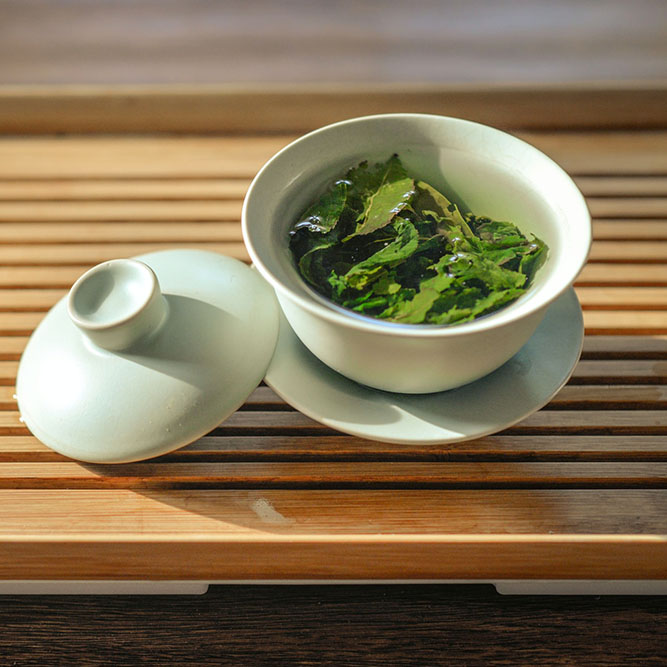Like many other plants and herbs, kratom leaves have properties that have historically been used to bolster overall health. Depending on the dosage, the strain, and the “speed” of kratom, it’s reported to produce either stimulating or sedating effects. In Southeast Asian folk medicine, kratom has been used as a natural remedy for a variety of health issues, ranging from improving productivity and focus to regulating appetite and boosting libido. As it gains popularity in Western countries, more researchers are investigating the various ways kratom might affect physical and mental health.
While there are currently no FDA-approved uses for kratom, clinical research into the potential benefits of kratom is focused on a few applications most commonly reported by active users. Much of the evidence supporting kratom’s benefits are a combination of anecdotal reports, surveys of active users, and individual studies or literature reviews seeking to make the case for more comprehensive research. This article uses a combination of the most popular studies done on kratom and its potential uses.
Managing Pain
According to a survey of 8,049 active users, 68% of people who use kratom do so to relieve pain or manage physical discomfort. While this is not yet a medically validated use, research into this application focuses on certain alkaloids found in kratom, which may act similarly to other pain medications. One study discovered that the alkaloid 7-hydroxymitragynine has analgesic properties; another found that kratom appears to temporarily, but significantly, increase pain tolerance in daily users, although pain tolerance is difficult to measure objectively.
In Southeast Asia, where kratom use has a much longer history, certain types of kratom are purported to be better for pain management than others. More research is needed to fully understand how different strains correlate with different levels of the active components that provide this relief.
Supporting Sleep
When taken in larger doses (greater than 15 grams), some strains of kratom may induce feelings of relaxation or sedation. According to the survey of kratom users linked above, 66% of survey participants use kratom to manage their mental and emotional health. Just as with pain management, the applications of any substance for managing mental health conditions require significant clinical testing and research. However, the existing literature on kratom does indicate that it may have certain applications for reducing feelings of unease or tension and supporting a more relaxed mentality.
Relieving Depression
Beyond promoting relaxation, kratom might have other mental health benefits that warrant further investigation. A survey conducted by the Johns Hopkins School of medicine found that 67% of respondents reported taking kratom for anxiety, while 65% took kratom for depression. Again, it seems that kratom could have potential for this purpose, as studies have investigated whether kratom could have antidepressant-like effects. Researchers attribute these anti-depressant properties to mitragynine, the most abundant alkaloid found in kratom.
Boosting Energy
Some users find that taking kratom can be stimulating and energizing, often resulting in feelings of elevated energy and productivity. Per the study about kratom’s historical uses linked above, kratom has long been used as a natural way to improve energy and concentration. The leaves of the Mitragyna speciosa plant, which kratom is derived from, are psychoactive, meaning they can impact the nervous system and alter cognitive processes. These psychoactive properties may be why some users feel alert and energized after taking certain strains of kratom.
Additionally, a study exploring the effects of kratom use on the cardiovascular system discovered that kratom users are more likely to have an elevated heart rate than those who don’t, further suggesting its stimulating effects. Some users report drinking kratom tea as a substitute for coffee, or else combining small amounts of kratom with their coffee for an energy boost at the start of the day.
Reducing Inflammation
Preliminary research has suggested that kratom might have “anti-inflammatory parasympathetic-impeding” effects, likely due to the alkaloid mitragynine. Another study concluded that kratom extract contains “potent” anti-inflammatory properties. However, this study was conducted on rats, and further research is needed to determine how kratom’s anti-inflammatory properties could impact humans. At this time, clinical research is too limited to conclude whether kratom does have anti-inflammatory properties, but the ongoing investigation into this relationship could lead to future discoveries about kratom’s usefulness for this purpose.
Increasing Libido
Following its traditional use as an aphrodisiac, some individuals have used kratom to enhance their libidos. The relationship between kratom use and feelings of sexual desire isn’t fully understood, as there are a limited number of studies on kratom and libido. Even among known studies, there are mixed results of kratom’s efficacy as an aphrodisiac. Researchers did find that, in the study of one man, regular kratom use lowered his levels of testosterone and prolactin, two hormones that help regulate libido. In a separate survey, 85% of males who used kratom daily reported “experiencing improved sexual performance” after taking kratom — whether or not they purposefully intended to do so. Further, both of these studies focused exclusively on men, making it unclear what effects, if any, kratom has on female libido.
Enhancing Immunity
Some researchers have theorized that kratom may act as an immunostimulant or may induce immunostimulating effects. While immune systems cannot be “boosted” in the traditional sense, immunostimulants work to increase the activity of one or more components of the immune system, making it easier for the body to fight off illness or infection. In the same study about kratom extract’s anti-inflammatory properties, researchers questioned whether some of the alkaloids in kratom might also have immunity-boosting effects. They hypothesized that kratom’s anti-inflammatory and immunity-boosting properties may be linked in some way, calling for further studies into this relationship.
Ultimately, it’s not completely clear how kratom can benefit human health. While there is not sufficient peer-reviewed research or clinical trials for kratom to be definitively categorized, reports from active users and preliminary research point to a few applications that are the focus of ongoing review. Researchers are only just beginning to understand how kratom works, as well as how it impacts the brain and body.
It’s thought that kratom is relatively safe to consume, as long as it’s a high-quality product from a trusted seller. In fact, those researching kratom’s uses advocate against it being banned outright or classified as a dangerous substance, in order to fully research and understand its potential therapeutic applications. Additional and more detailed study will help all kratom users make a more informed decision about their health — and help more people confidently use this botanical in a way that makes sense for their unique needs.







It caught my attention when you mentioned how kratom can help support sleep since it has properties that help reduce feelings of unease or tension and support a more relaxed mentality. My anxiety has been keeping me up all night these days, so my insomnia has gotten even worse and I’m at a loss on what to do without relying too much on sleeping pills. I might just consider using kratom and buying them in bulk if I find out they work well for me.